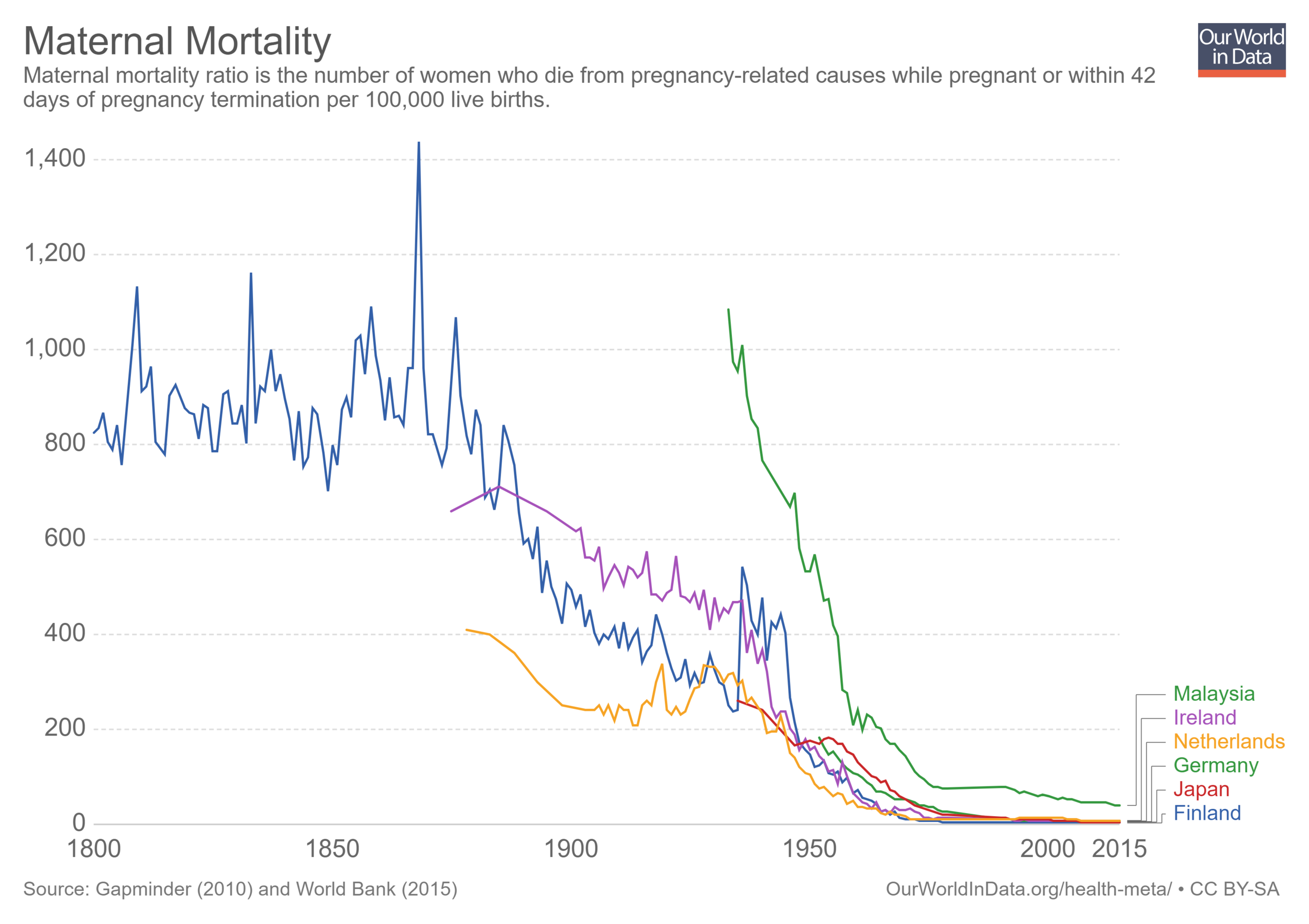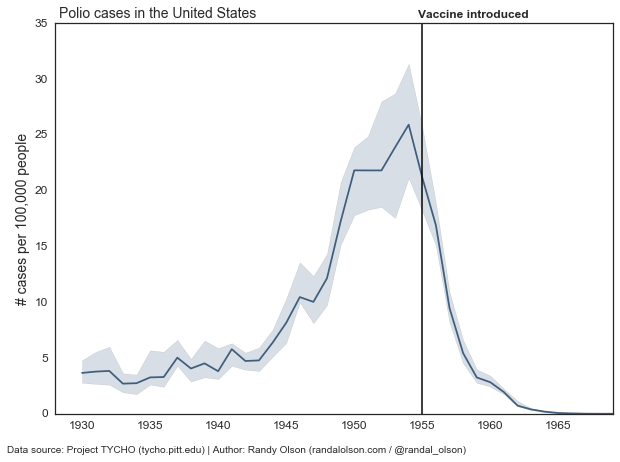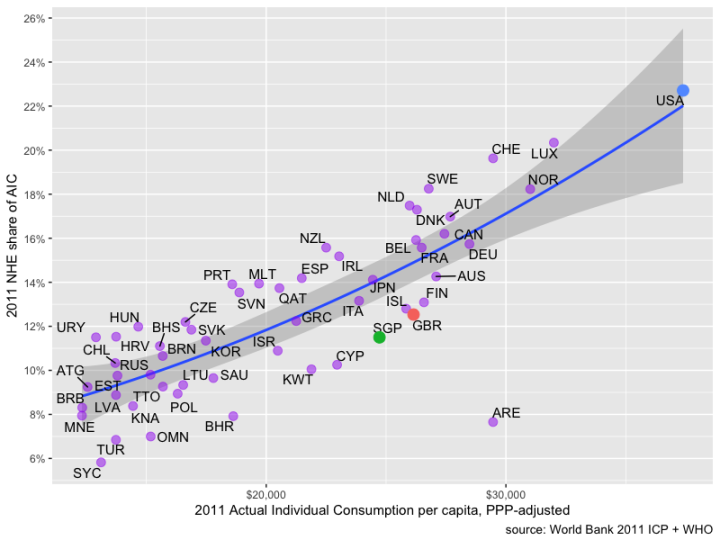What works in healthcare?
Short answer: almost nothing.
I’m being flip about a very serious subject, but at the same time I am in fact serious. Modern medicine probably works a lot less well than you probably think it does.
How could I say such a thing when you look at graphs like this?

Maternal mortality over time Our World in Data Global Health https://ourworldindata.org/health-meta
I say it because that is precisely what the evidence shows. If you look at Cochrane, the world’s preeminent aggregator of medical statistics, it is hard not to come away a bit disappointed. Effect sizes [usually the difference between the test group and the control group scaled to standard deviation units] tend to be rather modest.
Here are a few examples:
- Functional endoscopic sinus surgery, a treatment for chronic sinusits [something I have had done] has no evidence that it works better than medical management.
- Eszopiclone (trade name Lunesta), for sleep difficulty, has an effect size of twelve minutes.
- Negative pressure wound therapy for open traumatic wounds. No evidence it works.
You can amuse yourself by finding your own examples. There are a few things that genuinely work well. But even for things like MMR, the evidence isn’t as good as you might think.
I suspect what is going on is that medicine works, just barely, on average. You get things like the long slow decline of maternal mortality from the confluence of lots and lots of little things added together. If you look at anything else, heart disease, or cancer, you will see the same pattern. Vaccines are an exception. Disease rates for things with effective vaccines just drop off immediately.

Polio dropped right off

Heart disease is on a long, slow decline
Which brings us to my motivation for bringing this up at all. Random C. Analysis just published an updated argument that healthcare spending in the United States isn’t badly out of line with the rest of the world, once you take into account how much richer we are than just about everyone else. We have more, so we spend more. According to RCA’s data, when income goes up 1x, healthcare spending goes up 1.6x.

My contribution to this is to suggest the reason for this is we purchase more and more healthcare is precisely because it doesn’t work very well. At lot of modern medicine treats symptoms better than causes, because we don’t understand the causes very well. You buy as much symptom relief as you can afford. Even when treatments are genuinely curative, the success rates are often low. For example, the controversial statistic number needed to treat attempts to quantify how many patients need to be treated in order to produce one cure.
This number is often quite large, often on the order of 50 to 100. Even for a really good treatment with an NNT of 10, 9 times out of 10 it isn’t better than the alternative it is being compared to. That is a lot of wasted time, effort, and money.
We just don’t know how to predict the 1 time it works, so we treat everybody and hope for the best.
You can find speculation like this from Goldman Sachs that you can’t make enough money curing disease as compared to offering palliative care. I’m sure there really are businessmen who would gladly milk you for everything you are worth, but I don’t worry about in reality because no one understands how to cure most of the things that ail us. It isn’t like miracle cures are being withheld, or even that research is being directed away from cures. We don’t know enough to do that.

If we really wanted to limit costs for healthcare, it might be possible if we ruthlessly limited access to only things that really worked. We would get 80% of the benefit for 20% of the cost. But people would be pissed. The other 20% of the benefit does actually work, sometimes. I don’t think this is possible, or even really a good idea. Any real solution will involve technology we don’t currently possess.



Comments ()